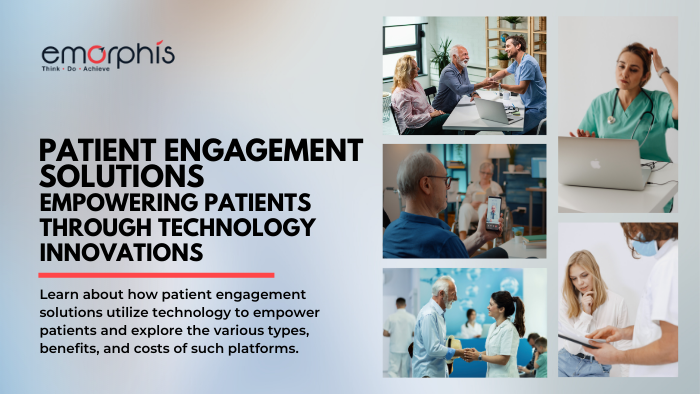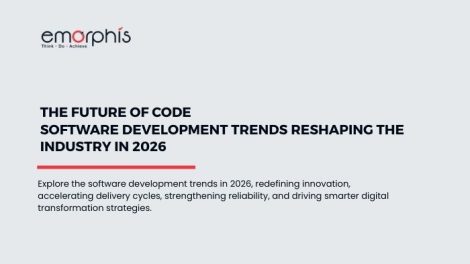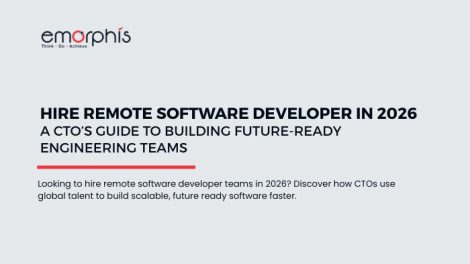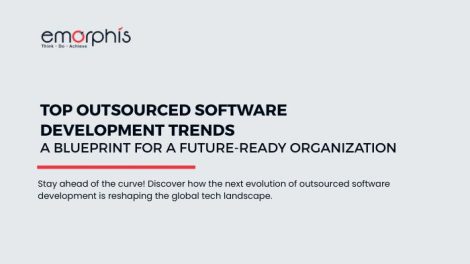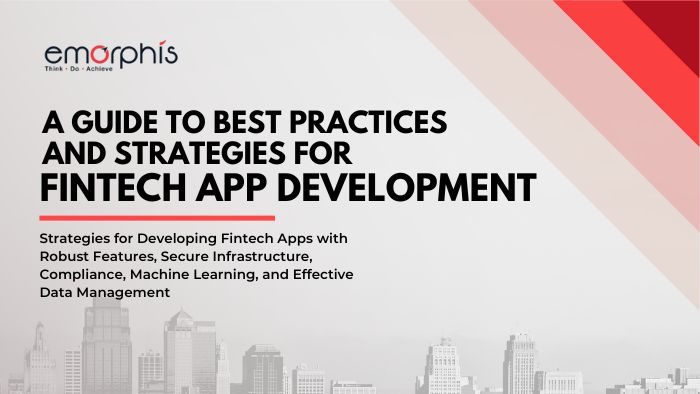Overview
Patient engagement solutions are tools, technologies, and strategies that aim to involve patients in their own care and improve their health outcomes. These solutions can include various digital tools such as mobile apps, patient portals, and wearables, as well as in-person and remote engagement strategies such as patient education programs and shared decision-making.
There is growing interest in patient engagement software as healthcare organizations seek to improve patient outcomes, reduce costs, and meet regulatory requirements. Here are some statistics that highlight the importance of patient engagement solutions A study by the National Institutes of Health found that patient engagement can improve outcomes in chronic disease management, prevention, and overall health. Also, according to a survey by the Society for Participatory Medicine, 70% of patients want to be more engaged in their healthcare.
A report by Frost & Sullivan predicts that the global market for digital patient engagement solutions will reach US$ 18.68 billion by 2025. Also, according to the Markets and Markets report, the global patient engagement solutions market revenue is estimated to reach US$ 27.9 billion by 2027.
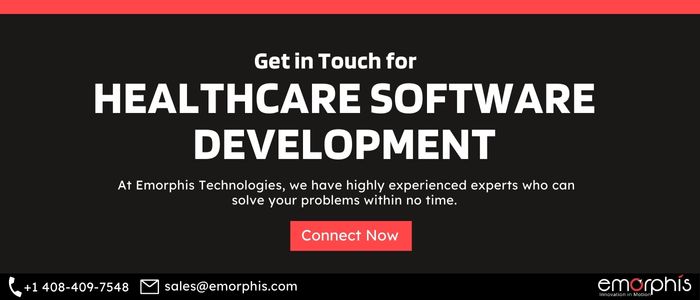
The technology used for patient engagement solutions may include applications, portals, virtual visits, wearable applications and devices, and other digital health tools. These solutions enable patients to be more active participants in their healthcare journey by providing them with access to their health records, educational resources, appointment scheduling, and other tools that enable them to manage their health more effectively.
With the statistics above now let’s look at what is it and how it can benefit healthcare providers, professionals, and organizations.
What is Patient engagement?
Patient engagement refers to the active involvement of patients in their own healthcare, intending to improve health outcomes. It involves empowering patients to take an active role in their care. Making informed decisions, and participating in their treatment plans. Patient engagement can take many forms. Including shared decision-making between patients and healthcare providers. Access to health information and resources, and support for self-management of chronic conditions.
Research has shown that patient engagement can lead to better health outcomes, increased patient satisfaction, and lower healthcare costs. It is becoming an increasingly important aspect of healthcare as the industry shifts towards a more patient-centered approach.
How does technology help in Patient engagement?
Technology can play a significant role in patient engagement. By providing patients with convenient access to healthcare resources and tools that enable them to take a more active role in their care. Patient engagement software solutions refer to a range of tools and strategies that healthcare providers and organizations use to actively involve patients in their care and improve patient outcomes. These solutions can take many forms, including technology-based tools, educational programs, and patient communication strategies.
Let’s check some of the ways in which technology can help with patient engagement solutions.
Types of Patient Engagement Solutions
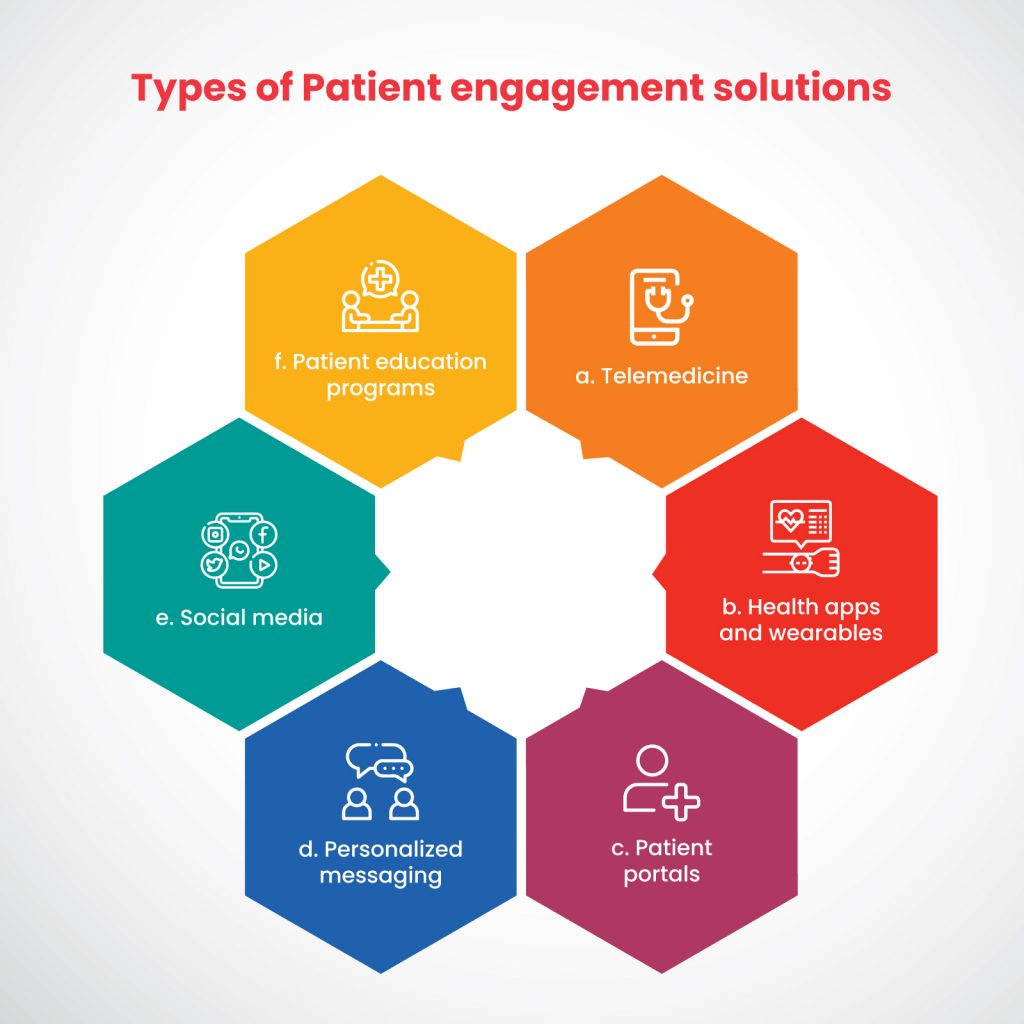
a. Telemedicine
Telemedicine apps and software allow patients to connect with healthcare providers remotely. These platforms can include features like video conferencing, chat messaging, and virtual check-ins. A telemedicine app development enables patients to easily schedule virtual appointments. Also, securely share medical records and test results, and receive personalized treatment recommendations.
b. Health apps and wearables
Health apps and wearables can be developed to track various aspects of a patient’s health. To name a few, physical activity, sleep patterns, and heart rate. These apps can be designed to integrate with wearable devices like smartwatches and fitness trackers. And also provide real-time feedback on a patient’s progress toward their health goals. Healthcare app development and wearable app development solutions can also include features like medication reminders, and appointment scheduling. Also personalized recommendations for diet and exercise.
c. Patient portals
Patient portals can be developed as a web-based or mobile app platform. It allows patients to access their health information, communicate with their healthcare providers, and manage their care. A patient portal app can include features like appointment scheduling, prescription refills, lab results, and secure messaging with healthcare providers. The app can be designed to enable patients to view their medical records. In fact, track their progress toward health goals, and receive personalized health education and resources.
d. Personalized messaging
Personalized messaging apps can be developed to provide patients with targeted reminders, educational resources, and personalized treatment recommendations. These apps can be designed to send reminders for medication, appointments, and other healthcare-related tasks. As well as provide tips for managing chronic conditions and maintaining a healthy lifestyle.
e. Social media
Social media platforms can be leveraged to engage patients in health-related discussions. Also, provide them with access to peer support groups. Social media apps can be developed to provide patients with health education and resources. As well as connect them with others who have similar health conditions. These apps can be designed to facilitate safe and secure communication between patients. In fact, providing them with personalized recommendations for improving their health.
f. Patient education programs
Patient education programs can provide patients with information about their health conditions, treatment options, and self-management strategies. These programs can be delivered in person, through educational materials, or through online resources.
Healthcare app development can play a critical role in patient engagement. In fact, enabling patients to take a more active role in their care. And also empowering them to achieve better health outcomes. Patient engagement software solutions can help improve patient outcomes, increase patient satisfaction, and reduce healthcare costs. By actively involving patients in their care, healthcare providers can improve patient adherence to treatment plans. Also, reduces hospital readmissions, and ultimately improves patient health outcomes.
What Are the Challenges of Implementing Patient Engagement Solutions?
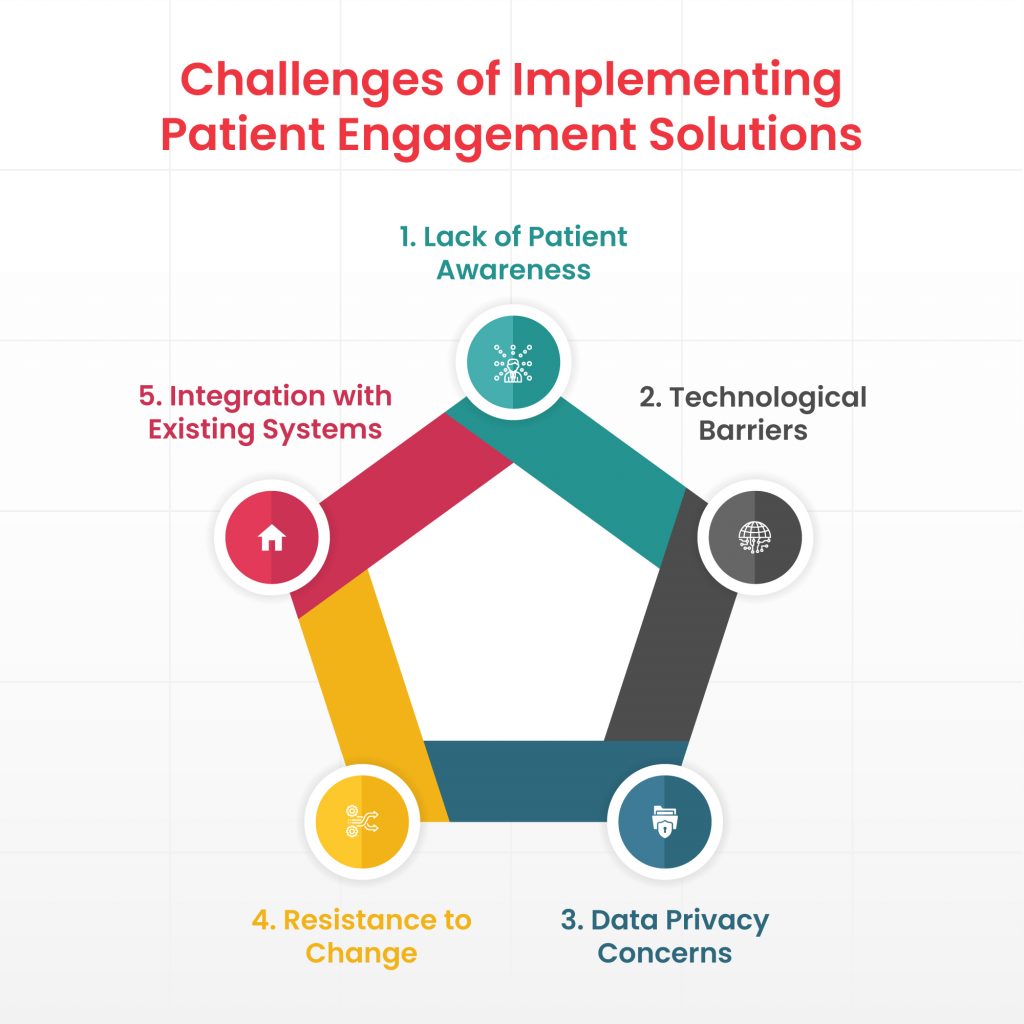
Implementing patient engagement solutions can be challenging due to a lack of patient awareness. Also technological barriers, data privacy concerns, resistance to change, and integration with existing systems. In fact, healthcare providers can overcome these challenges by educating patients. Also, offering access to technology, ensuring data privacy, and gradually introducing patients to technology. As a matter of fact, working with technology vendors who specialize in healthcare integration. By addressing these challenges, patient engagement software solutions can be successfully implemented to improve patient outcomes and also overall healthcare quality.
1. Lack of Patient Awareness
One of the biggest challenges of implementing patient engagement solutions is ensuring that patients are aware of and interested in using them. Providers can overcome this challenge by educating patients. In fact, about the benefits of patient engagement technology and demonstrating how it can improve their health outcomes.
2. Technological Barriers
Some patients may not have access to the technology needed to use patient engagement software solutions. Providers can help overcome this challenge by offering patients access to technology. In fact, providing training on how to use the technology. Or offering alternative engagement solutions that don’t require as much technological proficiency.
3. Data Privacy Concerns
Patients may be hesitant to use patient engagement solutions. This is due to concerns about the privacy and security of their personal health information. Providers can overcome this challenge by being transparent about their data privacy policies and providing secure and HIPAA-compliant technology solutions.
4. Resistance to Change
Patients may be resistant to using new technology or may be comfortable with traditional forms of healthcare. Providers can overcome this challenge by gradually introducing patients to patient engagement technology. And also demonstrating how it can improve their health outcomes.
5. Integration with Existing Systems
Patient engagement solutions may need to be integrated. Either with existing electronic health records (EHR) or billing systems, which can be complex and time-consuming. In fact, providers can overcome this challenge by working with technology vendors. Those who specialize in healthcare integration services, or gradually phasing in patient engagement solutions over time.
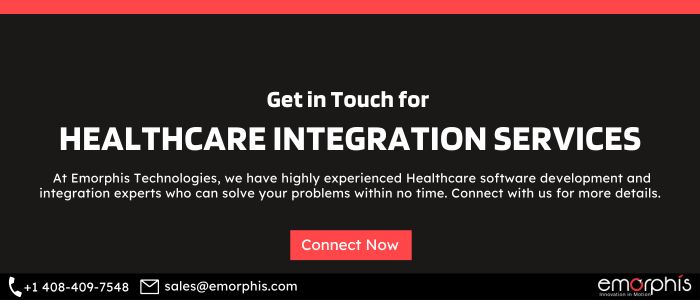
As a matter of fact, by addressing these above challenges. Healthcare providers can successfully implement patient engagement solutions. Which improves patient outcomes and also overall healthcare quality.
Let’s look at some of its advantages, some potential benefits of patient engagement solutions for different users are as follows.
Benefits of Patient Engagement Solutions
For Patients
- Improved health outcomes: Patient engagement software solutions can provide patients with access to health information and resources. In fact, enabling them to better manage their health conditions and make informed decisions about their care.
- Increased patient satisfaction: By providing patients with more convenient access to healthcare resources. Also, by enabling them to take a more active role in their care, patient engagement solutions can help to improve patient satisfaction.
- Better communication with healthcare providers: Patient engagement solutions can facilitate better communication between patients and their healthcare providers. Enabling patients to ask questions, provide feedback, and receive personalized recommendations for their care.
- Reduced healthcare costs: By improving patient adherence to treatment plans and reducing hospital readmissions. In fact, patient engagement solutions can help to reduce healthcare costs.
For Healthcare providers
- Improved patient outcomes: By actively involving patients in their care and providing them with access to healthcare resources. Patient engagement solutions can help to improve patient outcomes.
- More efficient use of resources: Patient engagement software solutions can help healthcare providers to more efficiently allocate resources. Also manage patient care, reducing the burden on healthcare systems.
- Better patient communication: These solutions can enable healthcare providers to communicate more effectively with patients. Thus providing them with personalized recommendations and support.
- Enhanced patient satisfaction: By providing patients with more convenient access to healthcare resources and empowering them to take a more active role in their care. These solutions can help to improve patient satisfaction and loyalty.
For Payers
- Improved patient outcomes: By actively engaging patients in their care and enabling them to better manage their health conditions. In fact, patient engagement solutions can help to improve patient outcomes, reducing healthcare costs in the long run.
- Reduced healthcare costs: Patient engagement solutions can help to reduce healthcare costs by improving patient adherence to treatment plans. Also, reducing hospital readmissions, and enabling more efficient use of healthcare resources.
- Better risk management: By actively engaging patients in their care. In fact, patient engagement solutions can help payers to better manage risk. Also, reducing the likelihood of costly medical emergencies and improving overall health outcomes.
- Enhanced member satisfaction: By providing members with more convenient access to healthcare resources. It also enables them to take a more active role in their care. Patient engagement software solutions can help to improve member satisfaction and loyalty.
As a matter of fact, patient engagement software solutions can provide a range of benefits to different users. In fact, including improved health outcomes, increased patient satisfaction, and reduced healthcare costs. By actively involving patients in their care, patient engagement platforms can help to improve patient outcomes.
What are the Key Features of Patient Engagement Solutions?
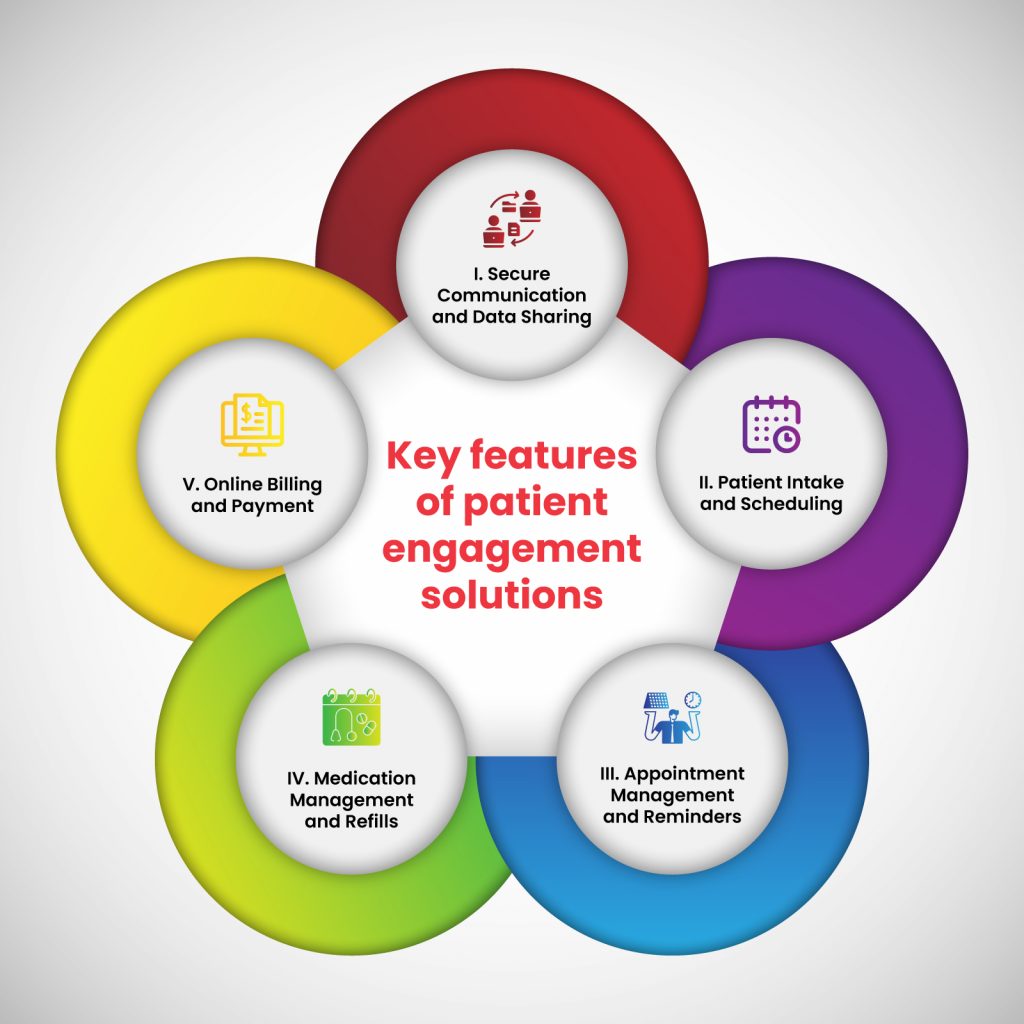
There are several key features that are common in patient engagement solutions. These features are designed to improve patient outcomes and increase patient satisfaction. In fact, by enabling patients to take a more active role in their care. Here are some common key features of patient engagement solutions:
I. Secure Communication and Data Sharing
Patient engagement solutions offer secure communication and data-sharing features that enable patients to securely communicate with their healthcare providers and access their medical records. Custom healthcare software development services can design software solutions that provide patients with convenient access to their health information while ensuring data privacy and security.
II. Patient Intake and Scheduling
Patient engagement platforms and applications provide patient intake and scheduling features that allow patients to easily register for appointments. Also, choose appointment times, and receive confirmation notifications. In fact, custom healthcare software development can help healthcare providers to create intuitive and efficient patient intake. And also scheduling systems that improve the patient experience.
III. Appointment Management and Reminders
Appointment management and reminder feature in patient engagement platforms and applications help patients stay on track with their care plans and reduce missed appointments. Healthcare software development services can help develop custom appointment management and reminder systems. As a matter of fact, that integrates with electronic health records and patient portals, improving care coordination and patient engagement.
IV. Medication Management and Refills
Patient engagement platforms and applications include medication management and refill features. In fact that enables patients to request prescription refills online and manage their medications. Also, custom healthcare software development can help healthcare providers to design medication management and refill systems. In fact, they are user-friendly, secure, and integrated with pharmacy systems.
V. Online Billing and Payment
Online billing and payment features in patient engagement solutions allow patients to view and pay their bills online. Also reducing administrative burden and improving patient satisfaction. Healthcare software development services can create custom billing and payment systems. In fact, that integrates with electronic health records and financial systems, streamlining the billing process and improving revenue management.
The key features of patient engagement solutions are designed to improve patient outcomes, increase patient satisfaction, and reduce healthcare costs. By empowering patients to take a more active role in their care and providing them with convenient access to healthcare resources, patient engagement platforms or applications can help to improve the overall quality of healthcare.
What is the Cost of Patient Engagement Solutions Development?
The cost of developing patient engagement solutions can vary depending on several factors. Such as the complexity of the software, the number of features required, and the platform or technology used. Also, the level of customization needed.
Some healthcare software development companies offer pre-built patient engagement software solutions. In fact, that can be customized based on the specific needs of healthcare providers. These solutions may be less expensive than building a custom software solution from scratch.
The cost of patient engagement platforms or application development may also include ongoing maintenance and support costs. As well as any licensing or hosting fees. Healthcare providers need to work with an experienced healthcare software development company that can provide a detailed cost estimate based on their specific needs and requirements.
How to Engage with a Healthcare Software Development Company for Patient Engagement Solutions Development?
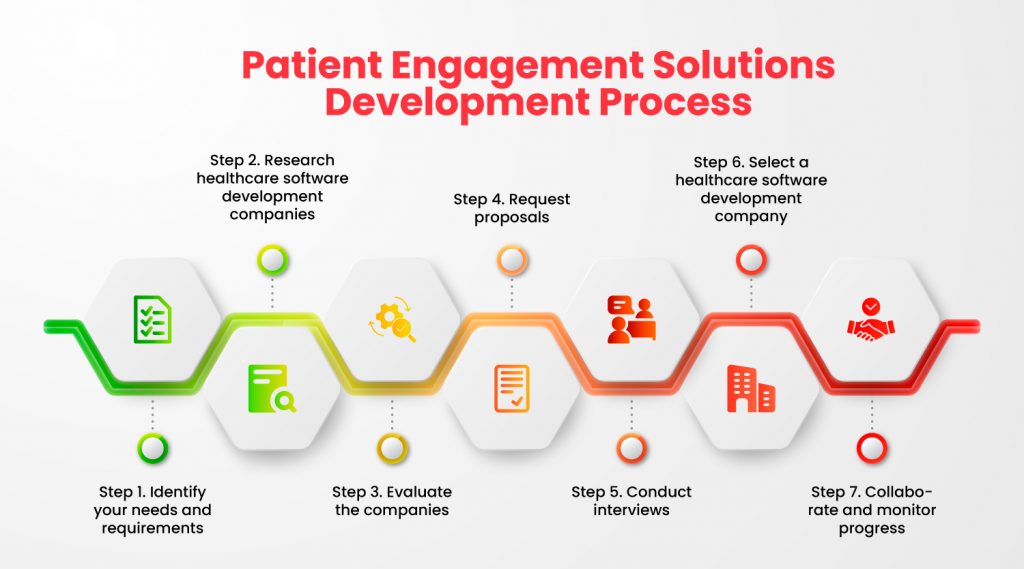
Engaging with a healthcare software development company for patient engagement solutions development can be done by following these steps:
Step 1. Identify your needs and requirements
Determine what features and functionalities you need for your patient engagement solution, as well as your budget and timeline.
Step 2. Research healthcare software development companies
Look for software development companies that have experience in developing patient engagement solutions, as well as a good reputation for delivering high-quality software. You can use online directories, social media platforms, and referrals from colleagues to identify potential companies.
Step 3. Evaluate the companies
Once you have identified potential companies, evaluate them based on their experience, expertise, and past work. Review their website, case studies, and client testimonials to get a better understanding of their capabilities.
Step 4. Request proposals
Contact the healthcare software development companies and request proposals that detail how they would approach your project, what methodologies and technologies they would use, and what their pricing and timeline would be.
Step 5. Conduct interviews
After receiving proposals, conduct interviews with the companies to clarify any questions you may have and to get a sense of their communication and collaboration style.
Step 6. Select a healthcare software development company
Based on your evaluation of the proposals and interviews, select the healthcare software development company that best meets your needs and requirements.
Step 7. Collaborate and monitor progress
Once you have selected a company, collaborate with them throughout the development process and monitor progress regularly to ensure that the project is on track and that the software is meeting your needs and requirements.
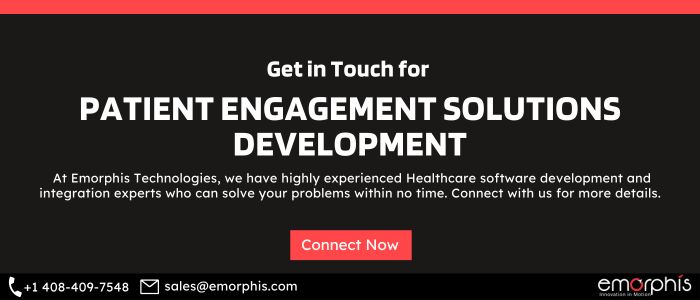
Compliance with Patient Engagement Solutions
Compliance is an important consideration when developing patient engagement software solutions. Healthcare providers must ensure that the software meets all relevant regulations and standards, such as HIPAA (Health Insurance Portability and Accountability Act) and GDPR (General Data Protection Regulation).
HIPAA regulations require that patient health information be kept secure and private and that any software used to store or transmit this information is compliant with HIPAA standards. GDPR requires that the personal data of European Union citizens be processed and protected under specific guidelines.
To ensure compliance, healthcare providers should work with a healthcare software development company that has experience in developing patient engagement platforms or applications that meet these regulations and standards. The software development company should have expertise in data privacy and security and should conduct thorough testing to ensure that the software is compliant before it is deployed. Additionally, healthcare providers should provide adequate training and education to their staff to ensure they understand how to use the patient engagement software in a compliant manner.
How Emorphis Technologies can help Patient Engagement Solutions development?
Emorphis Technologies is a healthcare software development company with a wealth of experience in developing patient engagement solutions that meet compliance regulations such as HIPAA and GDPR. The team of experts is knowledgeable in the latest healthcare technologies and can create customized patient engagement software solutions including apps and web platforms that meet the specific needs of healthcare providers.
Emorphis Technologies works with healthcare providers, professionals, and organizations throughout the entire development process, from requirements gathering and design to development, testing, and deployment. It also provides ongoing maintenance and support services to ensure that the software is always up-to-date and compliant.
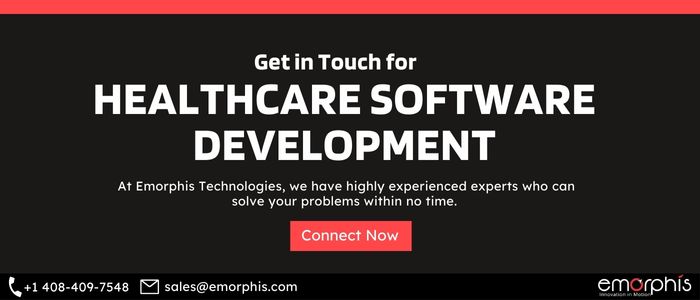
The development process is focused on ensuring compliance from the start. They use a proven methodology to develop software that is secure, reliable, and easy to use. Emorphis Technologies also conducts regular security audits and testing to ensure that the software remains compliant with all relevant regulations and standards.
With their expertise in healthcare software development and app development with a focus on compliance, Emorphis Technologies is an ideal partner for healthcare providers, professionals, and companies looking to develop patient engagement solutions that are secure, user-friendly, and compliant with regulations.



